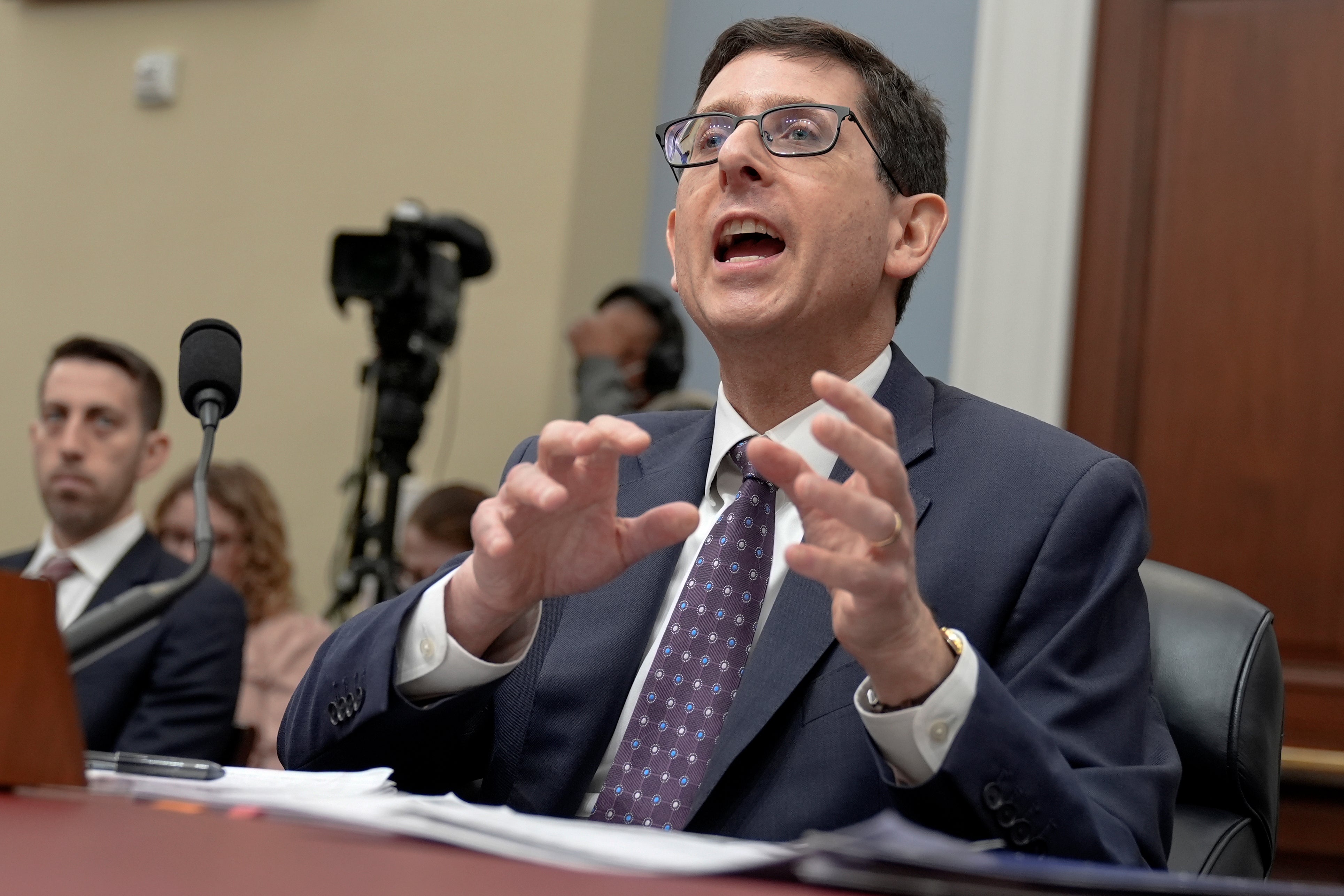Congressional Budget Office projects a $400 billion increase in this year’s federal deficit
The Congressional Budget Office said Tuesday that it projects a federal budget deficit increase of $400 billion or 27% this year, from its last budget outlook released in February

Your support helps us to tell the story
From reproductive rights to climate change to Big Tech, The Independent is on the ground when the story is developing. Whether it's investigating the financials of Elon Musk's pro-Trump PAC or producing our latest documentary, 'The A Word', which shines a light on the American women fighting for reproductive rights, we know how important it is to parse out the facts from the messaging.
At such a critical moment in US history, we need reporters on the ground. Your donation allows us to keep sending journalists to speak to both sides of the story.
The Independent is trusted by Americans across the entire political spectrum. And unlike many other quality news outlets, we choose not to lock Americans out of our reporting and analysis with paywalls. We believe quality journalism should be available to everyone, paid for by those who can afford it.
Your support makes all the difference.The Congressional Budget Office said Tuesday that it projects a federal budget deficit increase of $400 billion or 27% this year, from the last budget outlook released in February.
The major drivers of the change are higher costs from the supplemental spending package signed in April that provides military aid to Ukraine and Israel; higher than estimated costs of reducing student loan borrower balances; increased Medicaid spending; and higher spending on FDIC insurance after the agency has not yet recovered payments it made after the banking crises of 2023 and 2024.
The report also projects that the nation’s publicly held debt is set to increase from 99% of gross domestic product at the end of 2024 to 122% of GDP — the highest level ever recorded — by the end of 2034. “Then it continues to rise,” the report states.
Deficits are a problem for lawmakers in the years to come because of the burden of servicing the total debt load, an aging population that pushes up the total cost of Social Security and Medicare and rising health care expenses.
The report cuts into President Joe Biden’s claim that he has lowered deficits, as borrowing increased in 2023 and is slated to climb again this year.
The White House budget proposal released in March claims to reduce the deficit by roughly $3 trillion over the next 10 years and would raise tax revenues by a total of $4.9 trillion in the same period.
White House spokeswoman Karine Jean-Pierre, said after the report’s release that “the president is going to work to do everything he can when it comes to lowering the deficit,” adding that former president Trump “didn’t sign a single law to reduce the deficit.”
Former President Donald Trump, as a candidate for president in 2024, recently told a group of CEOs that he would further cut the corporate tax rate he lowered while in office, among other things. The Committee for a Responsible Federal budget estimates that the 10-year cost of the legislation and executive actions President Trump signed into law was about $8.4 trillion, with interest.
Michael A. Peterson, CEO of the Peter G. Peterson Foundation, said the CBO projections show that the outlook for America’s critical national debt challenge is worsening.
“The harmful effects of higher interest rates fueling higher interest costs on a huge existing debt load are continuing, and leading to additional borrowing. It’s the definition of unsustainable," Peterson said.
“The leaders we elect this fall will face a series of highly consequential fiscal deadlines next year, including the reinstatement of the debt limit, the expiration of the 2017 tax cuts and key decisions on healthcare subsidies, discretionary spending caps and more."